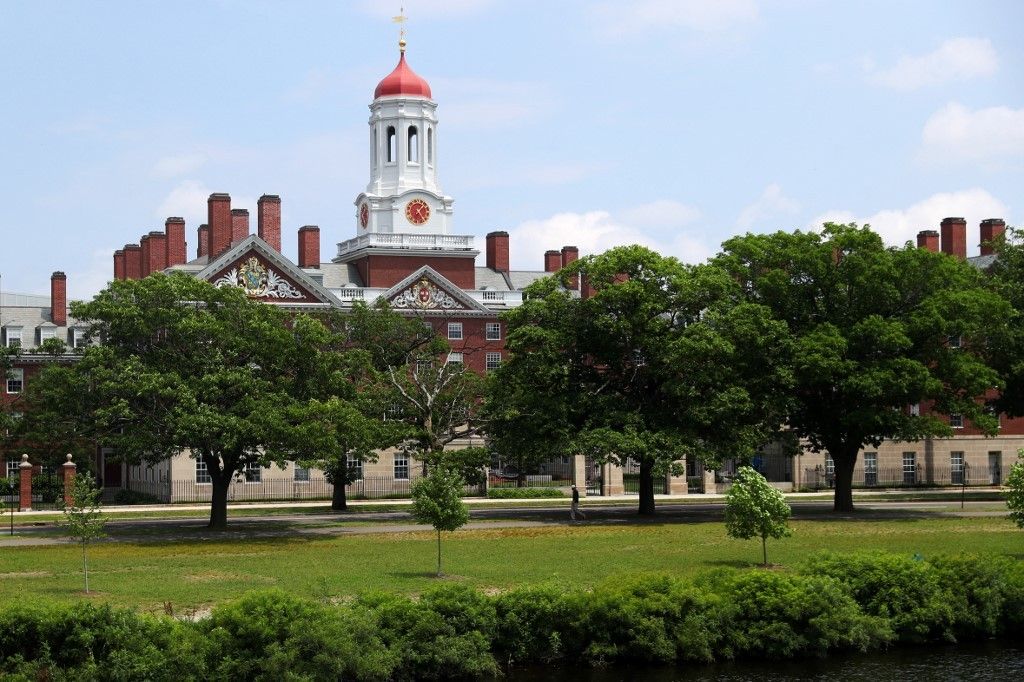Harvard teaching Tagalog course for the first time in nearly 400-year history

MANILA, Philippines — The Department of South Asian Studies of prestigious Ivy League school Harvard University will be teaching a Tagalog course in the next academic year.
This will be the first time in Harvard's 387-year history that it will offer a course in the Tagalog language, compared to Thai and Bahasa Indonesian which are currently taught at the university.
The university's breakfast-table daily newspaper The Harvard Crimson announced the news in an article posted online last March 24, and referred to Tagalog as the fourth most-spoken language in the United States.
Harvard's Asia Center was able to secure financial support for the three preceptors to teach the languages through fundraising efforts, according to Executive Director Elizabeth K. Liao; these positions will be three-year term appointments and are renewable for up to five additional years.
In addition to that the Asia Center's director and a a professor of East Asian Languages and Civilizations James Robson said the administration was able to get $1 million (P54 million) from the center’s budget to fund the Tagalog preceptor position but added funding might be "probably not entirely sustainable" after three years.
The Tagalog preceptor position will be responsible for teaching five Tagalog language courses per year, according to Harvard's offering page, with native or near-native fluency in Tagalog as a basic requirement.
RELATED: Robredo selected for Harvard fellowship
Advanced graduate training in Tagalog language, literature, and culture, or a strong graduate record in another area connected to the study of the Philippines or Southeast Asia are a plus.
For the most recent academic year, the Faculty of Arts and Sciences offered one survey course on the Philippines as part of Southeast Asian history.
Harvard does not currently have a specified Southeast Asian Studies department, and Robson said the Asia Center has been working to increase education about the region at the university.
"If we can demonstrate that there’s demand for these languages and students show up and are excited about it, then hopefully we can also use this to convince the administration to further support Southeast Asian studies generally and language instruction in particular," Robson told the Crimson.
Eleanor V. Wikstrom, co-president of the Harvard Philippine Forum and a Crimson Editorial chair, said getting Tagalog offered has been one of the goals for "as long as the forum has been in existence."
Two years ago Wikstrom wrote an op-ed criticizing the lack of the Harvard's offerings in the Tagalog language at Harvard, and she later received pushback for her advocacy efforts and questions about the value of learning the language.
RELATED: My Harvard professor’s top nudges on saving and investing
"We’re working against a historical memory that is actively erasing the understanding of the importance of the Filipino-American relationship," Wikstrom also said.
The forum's co-president Marcky C. Antonio called the official offering of a Tagalog course "a big win for the Filipino community back home," but while he felt elated at the news there was also some hesitation.
"While this is the first Tagalog language course that’s ever been offered in Harvard’s history, I think there’s also this sense that we need to make sure we teach this right — not only Tagalog language, but Filipino culture as a whole," Antonio said.
One student wanted to learn Tagalog when he arrived at Harvard but was surprised it wasn't an offering, telling the Crimson it would help Filipino students who grew up in the United States and never learned Tagalog.
Another student was grateful and relieved to hear about the Tagalog preceptor position, calling it important for Filipino representation in the school, "I think that’d be a step in the right direction for elevating not only Filipino students here at Harvard, but also the influence that the Philippines and Filipino culture has here on campus."
Both Wikstrom and Antonio reiterated they will continue for Filipino representation at Harvard, with the former saying, "We have further responsibility to push this now that we know that this is possible. So we’re not going to stop at Tagalog."
RELATED: Filipina Harvard grad’s mobile app seeks to lessen cost of OFW remittances



















